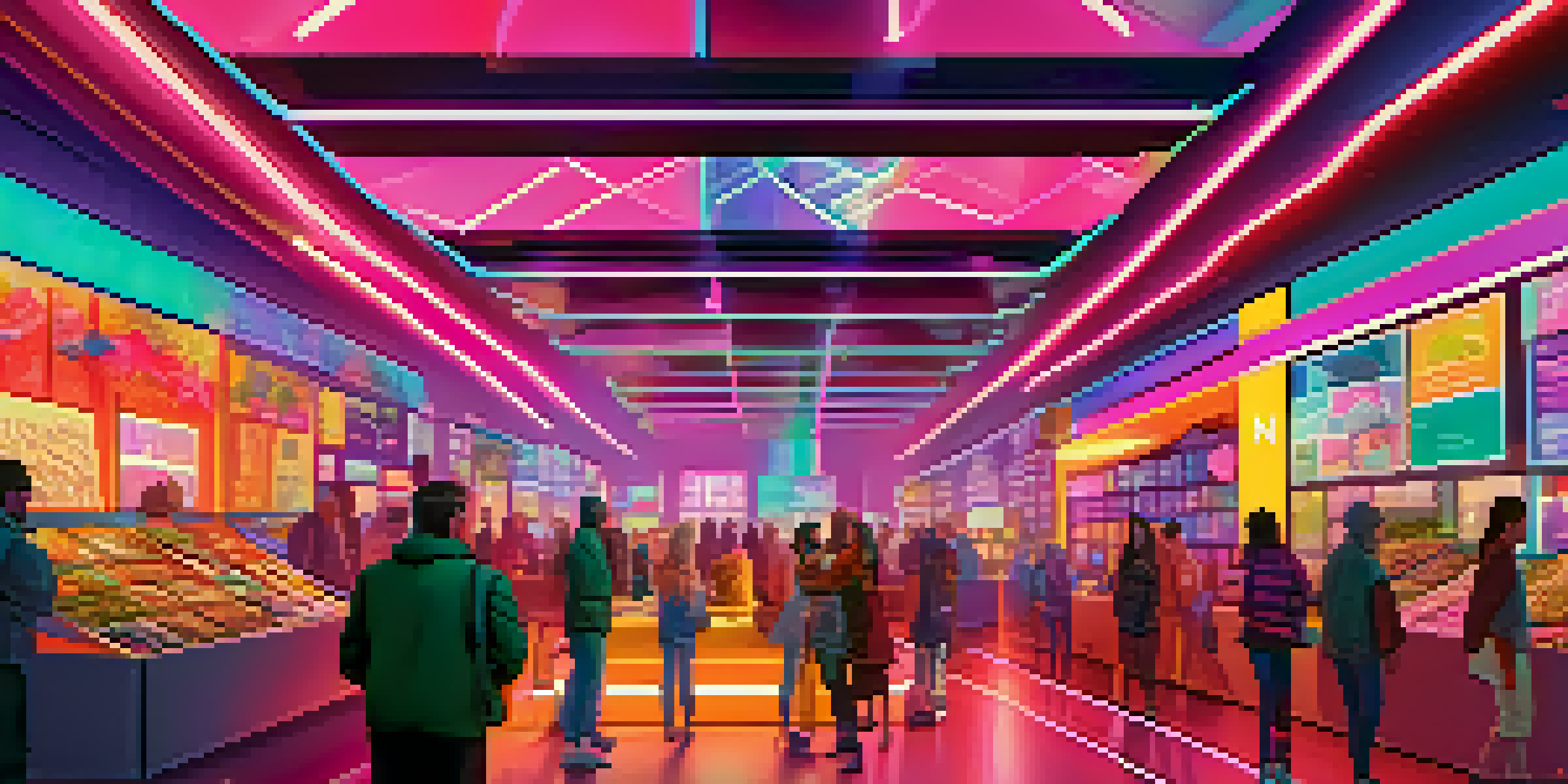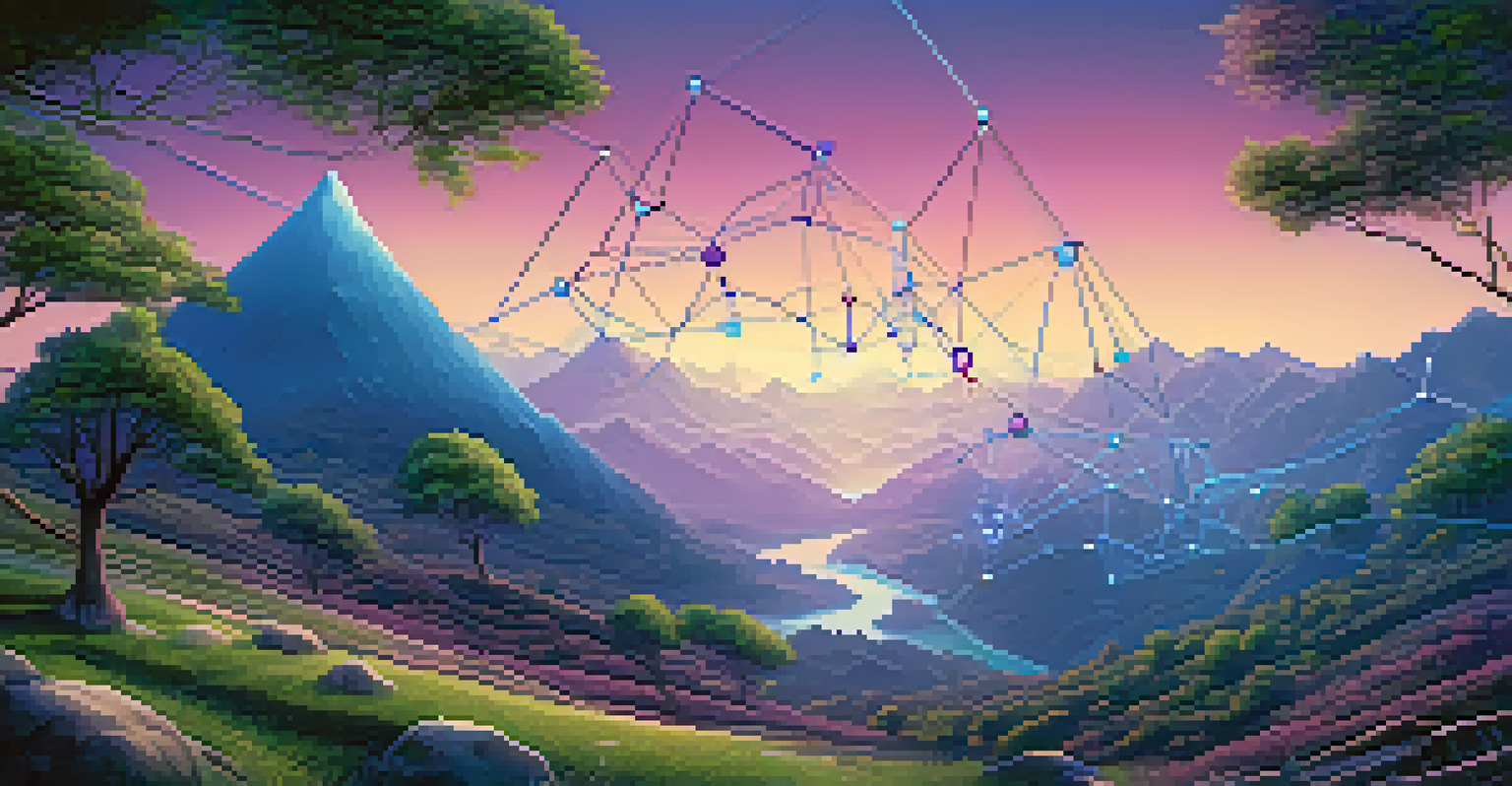Smart Contracts and NFTs: Bridging Digital Ownership

What Are Smart Contracts and NFTs?
Smart contracts are self-executing contracts with the terms of the agreement directly written into code. They run on blockchain technology, which ensures transparency and security. NFTs, or non-fungible tokens, are unique digital assets verified using blockchain, representing ownership of a specific item or piece of content.
Smart contracts are a promising technology that can enhance the efficiency of transactions in a digital economy.
To put it simply, think of smart contracts as digital vending machines: you insert your coins (or cryptocurrency), and the machine delivers your snack without needing a cashier. NFTs, on the other hand, are like collectible trading cards—each one is unique, and owning one means you have something special that others may not.
Together, smart contracts and NFTs create a powerful ecosystem for digital ownership, allowing creators to sell their work directly to buyers without intermediaries, ensuring both parties are protected.
How Smart Contracts Work in Digital Transactions
Smart contracts automate transactions by executing when predefined conditions are met. This automation reduces the need for manual intervention, making processes faster and more efficient. For instance, if a buyer purchases an NFT, the smart contract can automatically transfer ownership once payment is confirmed.

Imagine buying a concert ticket online. Instead of waiting for a confirmation email, a smart contract would instantly validate your payment and send you a digital ticket, all without human oversight. This seamless interaction enhances the user experience and builds trust in digital transactions.
Smart Contracts Automate Transactions
Smart contracts execute automatically when conditions are met, streamlining digital transactions and enhancing user experience.
Moreover, smart contracts are immutable, meaning once they're deployed, they can't be altered. This feature ensures that the terms of the agreement remain intact, providing peace of mind for both buyers and sellers in the digital space.
The Role of NFTs in Digital Ownership
NFTs revolutionize the way we think about ownership in the digital realm. Unlike traditional assets, NFTs are indivisible and unique, which means each token represents a specific item that can't be duplicated. This uniqueness is crucial for artists and creators wanting to establish provenance for their work.
NFTs are the future of digital ownership, providing a mechanism for artists to retain control over their work.
Consider digital art: an artist can create a piece and mint it as an NFT, verifying its originality and ownership on the blockchain. Just like owning a famous painting, owning an NFT means you have the exclusive rights to that particular digital creation, even if others can still view it online.
This shift in ownership opens new revenue streams for creators, allowing them to sell their work directly to fans while retaining control over their intellectual property. It's a win-win situation that empowers artists in a digital-first world.
Challenges of Smart Contracts and NFTs
Despite their benefits, smart contracts and NFTs also face challenges. One major concern is the potential for coding errors in smart contracts, which can lead to unintended consequences. If a contract contains a flaw, it could be exploited, resulting in financial loss for the involved parties.
Think of it like a recipe: if you miss an ingredient or misjudge the cooking time, the end result can be disastrous. Similarly, if a smart contract isn't written correctly, it can lead to significant issues down the line. It's essential for developers to thoroughly test and audit contracts before deploying them.
NFTs Ensure Unique Digital Ownership
NFTs provide a way for artists and creators to establish unique ownership of digital assets, fostering new revenue streams.
Additionally, the environmental impact of NFTs has sparked debate due to the energy consumption of blockchain networks. As the technology evolves, finding sustainable solutions is crucial to balance innovation with ecological responsibility.
Use Cases of Smart Contracts and NFTs
The applications of smart contracts and NFTs are vast and varied. In the art world, artists can tokenize their work, ensuring that every sale is tracked and royalties are automatically distributed. This innovation allows creators to benefit from their art even after the initial sale.
Consider the music industry: artists can release songs as NFTs, giving fans exclusive access and ownership. This approach not only generates revenue but fosters a deeper connection between artists and their audience, creating a community around their work.
From real estate to gaming, smart contracts and NFTs are transforming industries by streamlining transactions and enhancing trust. The possibilities are endless, and as more sectors embrace this technology, we can expect to see even more creative uses emerge.
The Future of Smart Contracts and NFTs
As we look ahead, the future of smart contracts and NFTs appears bright. With ongoing advancements in blockchain technology, we can anticipate enhanced functionality and usability. This evolution will likely lead to wider adoption across various industries, making digital ownership more mainstream.
Envision a world where buying a house involves a simple digital transaction backed by a smart contract. The cumbersome paperwork and lengthy processes could become a thing of the past, replaced by efficient, secure transactions that anyone can navigate.
Challenges in Smart Contracts Exist
Despite their advantages, smart contracts and NFTs face issues like coding errors and environmental concerns that need addressing.
Moreover, as awareness of NFTs grows, we may see innovative applications in education, gaming, and even event ticketing. The potential for new business models and revenue streams is limitless, paving the way for a more connected and accessible digital economy.
Conclusion: Embracing Digital Ownership
In conclusion, smart contracts and NFTs are not just buzzwords; they're redefining how we think about ownership in the digital age. By leveraging blockchain technology, they provide security, transparency, and new opportunities for creators and consumers alike. Embracing this digital ownership revolution can open doors to exciting possibilities.
Just like how the internet transformed communication and commerce, smart contracts and NFTs are set to revolutionize how we engage with digital assets. It's an evolution that encourages creativity while providing a platform for fair compensation.

As we move forward, understanding and adapting to these changes will be crucial. Whether you're an artist, a business owner, or a consumer, being informed about smart contracts and NFTs can help you navigate this new landscape and make the most of digital ownership.